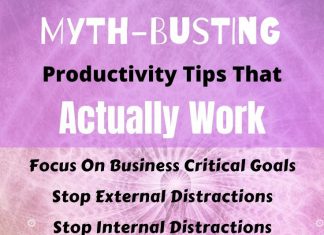Managers and leaders are only human, and humans are not perfect decision-makers, so you can expect a bad decision occasionally. However, when an otherwise competent manager starts making bad decisions in business, it can impact their team and the broader company.
Humans As Decision Makers
Consider the most important decision of all: who shall we marry? It turns out that the critical decision of choosing a life partner is an extremely difficult decision to get right. According to the CDC’s National Center for Health Statistics, 42% of all marriages in the USA result in divorce. This means that only 58% of the time, we make a good choice in our most important decision. Even though we have no limit on the time to “test drive,” evaluate, and assess a future life partner, we still fail 42% of the time.
It can be argued that people change over time, and therefore, partners grow apart, meaning the outcome is unforeseeable. Still, the counter-argument is that the criteria upon which the decision was made were not as robust as they could be.
In either case, we humans probably get any decision correct 58% of the time.
1. Inexperience in Life or Leadership
A young manager just starting their career in management might simply not have enough business and life experience to make a high percentage of good decisions. Often, a mistake of young managers is to say “Yes” to everything, which can lead to an overburdening of the team. Saying “No” to many requests may lead others to perceive the manager in a negative light. Always saying “Yes” without question and without prioritizing the requests can lead to overworking your team, forcing poor decision-making further down the line.
Inexperience in leading people on a personal level can also lead to bad decisions. A younger manager who manages more mature workers can run into conflict if they do not show the required self-confidence to stick to their decisions and follow through. If the young manager is not committed to their decisions, they cannot expect their older team members to follow through.
2. Personal Life Pressures
Although it is unprofessional to let your personal life interfere with your professional life, it happens all too often. Consider a manager who is going through a painful split with their partner and discovers that a team member has started dating another co-worker. The manager intervenes with the two employees and stresses that workplace romances are unacceptable.
While workplace romances are frowned upon, they are neither illegal nor legislated against in any ethical code of conduct that I have read. The manager is making a poor decision; the manager should not get involved in this situation and should rise above it. However, if the relationship starts to affect performance, this could be a case for intervention.

"When You Stop Learning, You Stop Living" SkillShare Makes Learning Easy. Skillshare Is Our #1 Rated Learning Platform With Great Lessons On:★★★★★ Creating: Photography, Film-Making, Music, Graphic Design & Coding ★★★★★ Building: Leadership, Communication, Entrepreneurship & Marketing ★★★★★ Thriving: Personal & Professional Development, Productivity, Time Management "Skillshare is like Netflix for learning. I take a course every time I need a new skill. With over 30,000 courses to choose from, I always have something to learn." Barry D. Moore - Founder: GreatWorkLife.com |
3. Time Pressure
The life of a manager is often one of being under constant time pressure. For example:
- You need to deliver a sales number by the end of the month
- You need to present your status report at the senior manager’s weekly team meeting
- You need to stay late to complete your presentations for the next day
- You need to interview ten candidates for an open position
- You need to formulate a detailed business case for investment in a new product or service
The role of a manager can be exciting and challenging, but the package comes with time pressure. If your manager is overwhelmed, they may not be able to adequately dedicate enough time to consider important decisions.

4. Stress & Overwork
Due to time pressure and overwhelming demands on the team, your manager may well be under stress. Often, decisions made under stress and overwork are not good decisions. Many companies now promote a work/life balance. But while they promote it, most management teams do not actually support it. You get promoted by delivering results and not having a good work/life balance. If you, as a manager, can achieve both, you will have a better decision-making track record.
5. Senior Leadership Pressure
If you have not been a manager, you may not appreciate that managers are under constant pressure from above. If you have a great manager, they will protect you from external pressures so that you can perform.
Common Senior Leadership Pressures Leading To Poor Decision-Making
- Forcing continual cost reductions even though the business is growing
- Enforcing a “Fire the underperforming employees” policy
- Inflating targets to unachievable levels to force an over-performance situation
- Pushing a policy of continual workforce downsizing. Even though your company meets its revenue, sales, and profit targets, leadership is still reducing the workforce by 10% per year.
- Constantly reorganizing the company between functional hierarchy (Sales, Product Development, Operations) or business unit hierarchy (Product A, Product B, Product C).
Most senior leaders do not understand the company well enough to optimize the organizational structures, yet they constantly reorganize to prove they are doing something of value.
These pressures exert a huge burden on managers, which can lead to poor decision-making.
6. Pressure from Individual Team Members
Some teams have larger-than-life characters that perform important roles and have undue influence within the team. This is a real-life example from my early career. I took a freelance I.T. contract with a large pharmaceutical company. I was 23 years old, and the contract was more money than I could have dreamed of as someone fresh out of university. There was a guy on the team; let’s call him Dave. Dave was tough, physically, mentally, and personally; he did not suffer fools gladly and was crushing if any “Newbie” made a mistake. Even his manager was scared of him. Dave was effectively running the team, and it did not help the manager that Dave was also one of the most talented I.T. guys in the company.
This placed the manager in an awkward position of deference to Dave’s wishes. If you, as a manager, are in this position of managing a tyrant, you either need to befriend and coach them into better work practices or develop someone to take over their work and let them go.
 Audiobooks Are Food for the Mind Inspiration, Education & Relaxation Have you discovered the joy of listening?★★★★★ Audible: Review Winner - Best for Price, Library Size & Original Content. ★★★★★ Blinkist: Review Winner - Best Audiobook Summary Service. ★★★★ Audiobooks.com: Best For Unlimited Audiobook Listening. "As a 10-year member of Audible, I have a library of 300+ audiobooks. The best thing is, with a few clicks, I can return any book within 12-months. I also subscribe to Blinkist; with 5,000 15-minute audio-summaries, I can consume knowledge and learn new concepts fast." Barry D. Moore - Founder: GreatWorkLife.com |
7. No Clear Personal Values
As a manager, you need to have a clearly defined set of personal values; these values will enable you to make better business and team decisions. Our article on ethical leadership discusses the FATHER framework for developing core values.
Fairness – The principle of fairness is at the core of how humans interact and expect to be treated. By default, we expect to be treated fairly and strive to treat others fairly. As a leader, you should always treat your team, tribe, or followers fairly.
Accountability – Being accountable for bad decisions or mistakes shows your moral fiber. We all make mistakes, but many of us will not admit our mistakes and move on. Accepting accountability shows you are a strong, well-rounded leader with a character that people will respect and follow.
Trust – Great relationships and great teams are built on trust. Your team, family, and friendships rely on trust to grow and develop meaning. All high-performing teams, whether in the military, football teams, or teams within your company, will have a strong foundation when built on trust.
Honesty – Being able to discuss important issues with those around you openly and honestly is key to the integrity of our relationships. Honesty feeds into trust directly. If you cannot be honest with someone, you cannot trust them to hear the truth.
Equality – The principle of equality is core to our global human survival and happiness. There are so many inequities in the world, based largely on the fact that people love to discriminate against others for so many reasons.
Respect – The meaning of respect is to show regard for the wishes, feelings, and rights of others. You may not agree with the feelings or wishes of other people, but you need to respect that they have those feelings. You must appreciate that someone is the way they are for a reason. A true understanding of humanity means you will learn to respect our differences. You may not agree with those differences, but you need to consider why those differences exist.
A manager without a strong set of values will make poor decisions repeatedly.
8. No Solid Decision-Making Process
To keep it simple, two major theories/considerations in ethics are said to compete: duty and utilitarianism.
The duty-based approach establishes right or wrong based on a list of rules, such as the biblical rule “thou shalt not kill.” If you break the rule, you are in breach. Most company codes of conduct are duty-based.
The practical approach judges a decision to be right or wrong based on the consequences of “the greatest good or the least pain.”
This might sound overly complex, so use the following decision-making cheat sheet.
Decision Plan Template
| What is my decision? | ______________________ |
| Why have I made this decision? | ______________________ |
| Who will help me implement it? | ______________________ |
| Who is affected? | ______________________ |
| How can I minimize the impact on others? | ______________________ |
| What are the steps involved? | ______________________ |
| When will I begin the actions? | ______________________ |
| When will the actions be completed? | ______________________ |
| Post-plan review. Did it work out as expected? | ______________________ |
9. Ego & Power
The age-old phrase “power corrupts” is as true as it is timeless. While leaders might not have much influence in the world, they certainly wield power over their subordinates. A manager without a solid foundation of meaningful values will start to make poor decisions when they feel they are in a position of power. When a manager exudes the aura of being able to walk on water, it will coincide with poor decision-making.
10. Lack of Balance Between Emotion & Logic
We, humans, are both logical and emotional animals. Yet, in some areas of our lives, we let emotion control our decision-making. For example, when it comes to the choice of partner or choices of friends, we are often, if not entirely, driven by emotion.
A well-balanced manager should be able to make good, logical choices that also resonate with them emotionally. Overly cold and calculating business decision-making without consideration for the human aspects and impact of the decision will not be balanced. Moreover, an overly emotional decision that makes no logical sense is equally destructive.
Why You Might Think A Management Decision Was Bad
Hindsight Bias
As scientific research into managerial decision-making explains, there is “hindsight bias.” It occurs when people reflect on their judgments and those of others. We typically are not very good at recalling or reconstructing the way an uncertain situation appeared to us before finding out the results of the decision.
Consider this common example.
Your manager is hiring for a new position within the team. After a long interview process asking the best questions, the manager hires the most highly qualified person with the best cultural fit for the team. A few months after the new hire starts, the team realizes the new person is manipulative and politically driven, sowing negative feelings throughout the group.
The problem is that the manager’s choice was not necessarily bad. They were the best fit based on the interviewing, qualifications, and background research on the person. It was the best decision based on the information at hand.
The fact that the team, and probably the manager, judged it a bad choice with hindsight should not be held against the manager’s otherwise solid record of decision-making.
As Max Bazerman puts it, individuals should generally be judged by the process and logic of their decisions, not just on their results. A decision-maker who makes a high-quality decision that does not work out should be rewarded, not punished. Why? Because results are affected by a variety of factors outside the direct control of the decision-maker.
When the hindsight bias leads our knowledge of the result to color our evaluation of the decision maker’s logic, we will make poorer evaluations than we would otherwise.













it is nice of dicription personally i got al lot of skill i hope i will expect more of it to lead my life thanks for the post
Tnx